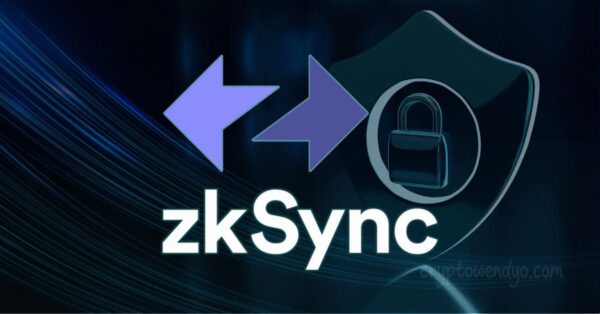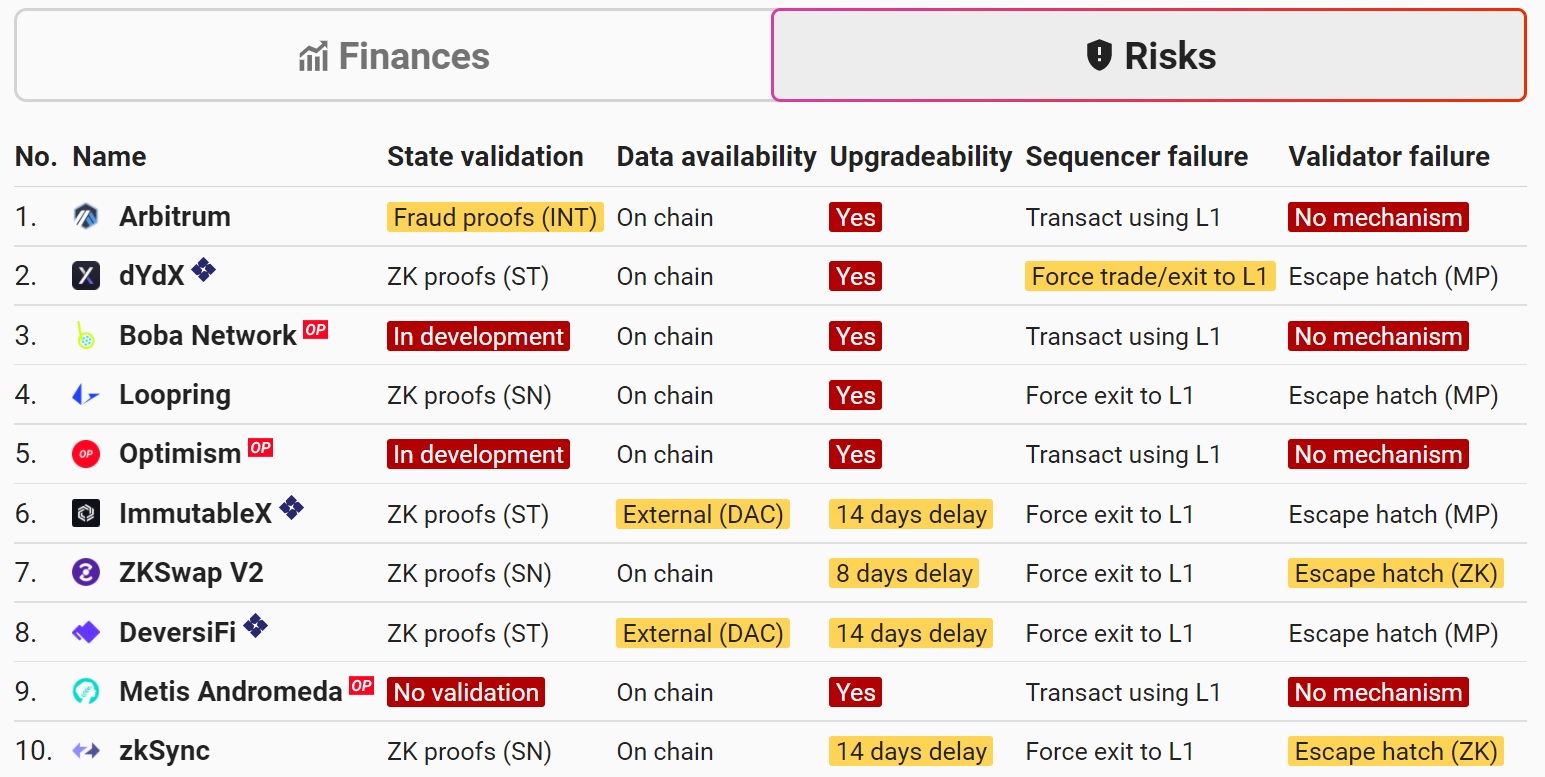


In my last article, we discussed the basics of zkRollups and Optimistic Rollups as a means of scaling Ethereum via Layer 2 (L2) solutions. In the coming weeks, I’d like to focus on projects attempting to tackle the issue of privacy via zkRollups.
This week we’ll take a look at zkSync.

I’m going to utilize fundamental analysis in my approach to these overviews so you can follow along & form your own opinions on this & other L2 solutions. Here’s a short list of resources I use alongside site-specific searches & the usual scouring of social media accounts & docs.
Dune Analytics is a platform that allows users to aggregate multiple datasets, charts, and statistics & post the correlations for other users to view. You can find an awful lot of great data by searching “L2” or specific platforms from the dashboard.
L2 Fees lets you compare L2 projects & see the average gas cost for several different transaction types.
L2 Beats analyzes financial aspects & inherent risks for multiple L2 solutions, and provides simple mouseover descriptions for most values.
Chainlist aggregates EVM rpc data & allows you to easily connect your web3 wallet to EVM-compatible L2s.
zkSync is a user-centric zk rollup platform from Matter Labs It is a scaling solution for Ethereum, already live on Ethereum mainnet.
Some of the main features of zkSync are:
zkSync is an attempt to bring the cypherpunk mindset of the early crypto community to Layer 2 with an open-source, privacy-focused zkRollup. They are very open about the inherent risks involved with experimental tech, but are currently one of the cheapest & safest (in terms of inherent risk & centralization of authority/trust) zkru options out there, according to data from L2Fees/Beats.
If you’ll notice, Loopring, Polygon, and zkSync consistently beat out Arbitrum in terms of fees, despite Arbitrum garnering something like 41.5% market share among L2s. One thing to consider with any L2 is how the associated token’s price might affect fees as the network scales. zkSync pays fees in the token you’re transacting with, utilizing a “swap” function, so you might not necessarily find yourself in a “rising ship/rising fees” scenario.


When I mention “inherent risks”, I’m speaking specifically about trust & centralization issues. As you’ll see, above, with most options the code is upgradeable, and can be changed arbitrarily & without notice. This requires a certain amount of trust in the respective teams, and trust is a hard-sell in an industry borne from the idea of “trustless”. With zkSync there is a delay before the code can be changed, giving users some time to react. Additionally, there is an “escape hatch” back to L1 in case of pending changes or validator failure.
zkSync will have a native token for users to stake & run validators, but they are building out the network first. You might be wise to give their Uniswap clone a try (requires tweet to request testnet tokens after connecting to Rinkeby testnet), just in case they reward active participants for trying them out early. Fees are paid in utilized currency, so if you’re using DAI – you pay a small amount of DAI, and so on. Full breakdown available here, with more information on security & “trust-minimized upgradeability”, here.
As with its native token, zkSync is building out the platform before rolling out privacy. Currently, transactions are transparent (as they are on Ethereum mainnet), but the elevator pitch is privacy-by-default, which is arguably the best way to approach it. (See: Monero) To accomplish this, they’ll have to keep the fee cost of private transactions low, which is why they’re tackling scalability first. See more about zkSync’s privacy policy, here.
With the current gas limit of 12.5M, zkSync 2.0 currently boasts speeds up to 5,000 tps, and has already handled some 20,000 transactions per hour at peak. zkPorter will optionally increase throughput, with reduced security in exchange for much faster tps & lower fees.
Redditor “Liberosist” explains, here:
“So where does the 100,000 TPS come from? This is the clever bit. zkSync 2.0 also has its own consensus mechanism for data availability, called zkPorter, that can significantly accelerate throughput without being bottlenecked by L1. So while zkSync 2.0 does up to 1,000 to 5,000 TPS in rollup mode, it’ll accelerate to 25,000 to 100,000 TPS in zkPorter mode. Of course, you’re relying on zkSync’s consensus mechanism, so it’s much less secure or decentralized than rollups which leverage L1. Users can opt in to either zkPorter or zkRollup – zkPorter offers negligible cost but lower security; while zkRollup mode offers maximum security and still low cost. zkPorter is actually still more secure than other L1s, as worst case your funds can only be confiscated, but not stolen or spent.”
Five pages in, and we could go on discussing potential advantages & disadvantages for at least another 20. Be sure to check out the zkSync docs for more, and I’ll be back next week to discuss another tilt at the zkru privacy windmill. Until then, DYOR & do it often.

Torrent/seedbox aficionado, decentralist, cultural archivist, fundamental analyst, podcast addict, shitcoin-sifter extraordinaire
Tip Jar
BTC: bc1qahxrp47hpguhx8y8r382dekgca34tlv54aufht
Doge: DJRy9gGSUGeyXfVcZXzKLkBv7RmDLv3MhJ
Share This Article
Join 10,000+ forward thinkers! Get crypto education in your inbox.